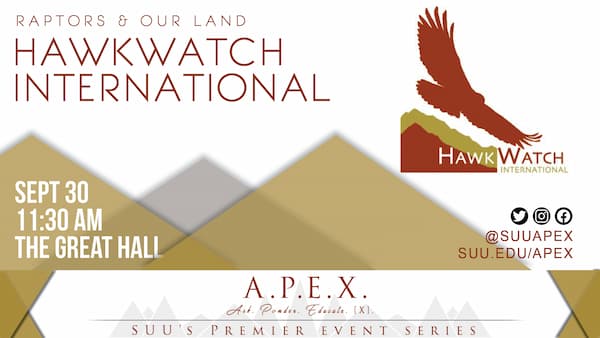
The mission of HawkWatch International is to conserve our environment through education, long-term monitoring, and scientific research on birds of prey as indicators of ecosystem health.
It all started in 1986 with founder Steve Hoffman, who first began his pioneering effort to learn more about raptor migration in the U.S. west. After a few treks up the trailless slopes of steep western mountains in search of these migrating birds, HawkWatch was born. Since then, the organization has counted, banded, gawked at, gauged, and gathered data on millions of birds heading south for the winter.
Over the years, the efforts to sustain and protect these remarkable creatures have led them to study and learn from these predators during all aspects of their lives, from spring nesting to fall migration and winter survival. What they have learned has informed land managers, other scientists, and people like you about what raptors need to survive in a rapidly changing landscape.
Reflection
On September 30, Southern Utah University hosted HawkWatch International. Ryan Paul, a faculty member at SUU introduced Melissa Halvorsen who is the Education and Outreach Director at HawkWatch International.
The HawkWatch mission is “to conserve our environment through education, long-term monitoring, and scientific research on raptors as indicators of ecosystem health.”
After telling the story of how HawkWatch came to be, Halvorsen explained how the raptors, once endangered, are now about to become endangered again. Halvorsen declared that in order for us to stop this endangerment problem, the “Tide of public opinion has to turn to the point that policy makers recognize that they need to act in order to keep their constituents happy.”
Halvorsen inspired the audience to make a difference in not only their community but also in their ecosystem. “To solve big problems we need diverse solutions,” Halvorsen said. “There is no one magic bullet that is going to make this go away. It is going to take a lot of different approaches, different people, and different minds working on this problem.”
Telling the crowd how they can help the endangered species, Halvorsen declared, “It is misleading to think that we can spend our way out of this problem. And it is misleading to think that you as the individual have to solve it through your choices alone. We have to come together, and the most powerful tool we have is not our dollar, but our voice.”
Halvorsen explained how everything is connected. “When raptors are healthy, so are you, so is your family. So start there. It’s not gonna change until enough people speak out and talk to the people in power and convince them that it is important to us to make these kind of changes.”
With her final words, Halvorsen left the audience with some notes of hope and how we all must play our part in this world. “We really believe in this concept of freedom and justice for all but we take that all away from just humans,” Halvorsen said. “It’s easy to feel disconnected from your ecosystem, but you are not. We are connected to our ecosystem whether we want to be or not. All has to mean people, it has to mean animals, it has to mean wilderness, it has to mean the planet. We are all united looking for justice because that is a part of the ALL.”




















































